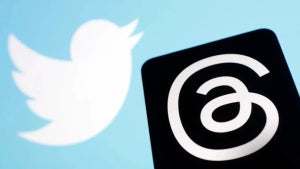- Brief overview: Apple and Microsoft are actively lobbying the European Union to ensure that services like Bing and iMessage are not designated as ‘gatekeepers’ under the upcoming Digital Markets Act.
- Essential perspective: While both tech giants are fighting to keep certain services off the list, they have adopted different strategies, like unbundling Teams from Microsoft 365 in the case of Microsoft, and questioning the user threshold for iMessage in the case of Apple.
- Next phase: With the EU’s ‘gatekeeper’ list scheduled for release this coming Wednesday, the decisions could have far-reaching implications for the operations of these tech companies in Europe, potentially affecting not just the services under debate but other aspects of their extensive portfolios as well.
Apple and Microsoft are actively engaging with the European Union to steer clear of an upcoming “gatekeeper” list. If you’re not familiar with the term, the EU’s Digital Markets Act aims to foster a more competitive landscape by identifying companies acting as ‘gatekeepers.’ These are platforms that could potentially stifle competition within the digital market.
Though the EU hasn’t publicized the list yet, there’s a general expectation that tech giants like Alphabet, Apple, Google, Meta, and Microsoft will likely be included. According to a report from the Financial Times, both Apple and Microsoft are already taking proactive measures to argue their case. The hope is to persuade EU regulators that they don’t belong on the list.
The criteria for making it onto the ‘gatekeeper’ list are pretty stringent: companies need an “annual turnover of more than €7.5 billion, a market cap above €75 billion, and active monthly users in the EU of 45 million.”
Bing’s Case
The list is slated for release this coming Wednesday, so it will be interesting to see which companies are named and which successfully argued their way out of it.
In an intriguing twist, Microsoft is pushing back against the idea that its search engine, Bing, should be subjected to the same regulations as Google Search. Why? Microsoft argues that forcing Bing to offer Google as an alternative could actually give Google even more control over the search market. This is a market where Bing holds a mere 3% share. Their stance is essentially, “Why subject the little guy to the same rules as the giant next door?”

“If covered by the new rules, Bing would need to give users a choice of other search engines, including Google’s. Advisers have argued in Microsoft’s defence that this could end up boosting Google’s market share.”
Interestingly, while Microsoft is staunch in defending Bing, the company appears less inclined to argue about Windows. Sources indicate that Microsoft is unlikely to contest if Windows, which has a strong foothold in the PC industry, is named a ‘gatekeeper.’
Apple’s defense
“Microsoft was unlikely to dispute the designation of its Windows operating system, which dominates the PC industry, as a gatekeeper, these people said.”
As for Apple, they’re also stepping up to the plate to defend their iMessage service. The tech giant contends that iMessage simply doesn’t have the user numbers to warrant being put in the same category as Meta’s WhatsApp. Essentially, Apple is saying that iMessage isn’t big enough to be considered a ‘gatekeeper’ in the messaging app arena.
Impending decision
So, as the clock ticks closer to the release of the EU’s ‘gatekeeper’ list this Wednesday, both Microsoft and Apple are making their cases known. They’re not just sitting back; they’re actively advocating for their services, albeit with different strategies.
“Separately, Apple argued that iMessage did not meet the threshold of user numbers at which the rules applied and therefore should not comply with obligations that include opening the service to rival apps such as Meta’s WhatsApp, said the two people.

Analysts have estimated that iMessage, which is built into every iPhone, iPad and Mac, has as many as 1bn users globally, but Apple has not disclosed any figures for several years. The decision is likely to hinge on how Apple and the EU define the market in which iMessage operates.”
Strategic moves
It’s clear that Microsoft and Apple are putting up a good fight to keep Bing and iMessage off the EU’s impending ‘gatekeeper’ list, but that doesn’t mean they’re entirely in the clear. The EU regulator is still mulling over whether these services meet the ‘gatekeeper’ criteria, and there’s a strong likelihood that other aspects of these tech giants’ operations could make the list.
In a strategic move, Microsoft has already begun to take preventive measures. The company has announced that it will separate Teams from its Microsoft 365 and Office 365 bundles within the EU. The aim? To avoid having Teams classified as a ‘gatekeeper’ service. Additionally, Microsoft is introducing user-choice-friendly features; they will allow system apps to open via any default browser a user selects—at least in the beta, or “Insider,” versions of their software.


